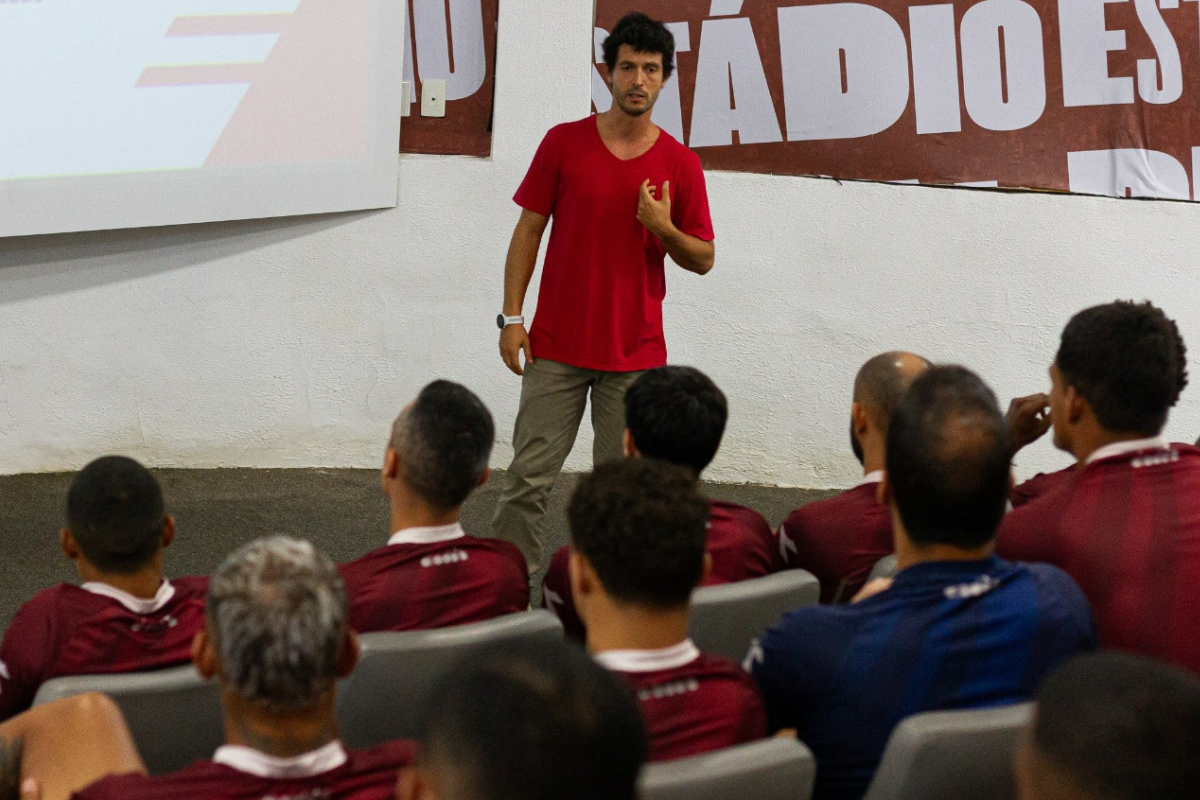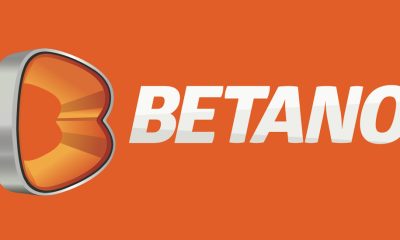Compliance Updates
Gaming Americas Q1 2024 Meetup: Balancing Slot Mechanics and the US Legislation Roundup

HIPTHER’s Virtual Quarterly Meetups for the Gaming industry have officially returned for 2024! The Gaming Americas Q1 Virtual Meetup took place on February 28, featuring an informative panel on Innovating Slot Mechanics, and our staple US Legislation Round-up.
HIPTHER’s Co-Founder, Zoltan Tuendik, hosted the first session about Slot Mechanics, featuring Connor Blinman, Head of Games at Gaming Corps, and Raph Di Guisto, Founder at Silverback Gaming. For the Q1 US Legislation Roundup, the “usual suspects” Martin Lycka, SVP for American Regulatory Affairs & Responsible Gambling at Entain, Bill J. Pascrell III, Esq, Partner at Princeton Public Affairs Group Inc, and Jeremy Kleiman, Gaming Attorney and Member at Saiber LLC, reunited for a session that offered ample insight into the latest regulatory updates in the United States.
The first part of the Meetup primarily focused on the future direction of the gaming industry, including emerging trends in slots and game mechanics, the potential of virtual reality and multiplayer technology in the casino industry, and the game development process. The US Legislation Roundup walked us through the challenges faced by the online gambling industry due to the popularity of unregulated offshore sites, the sports betting industry, the legalization of iGaming in various states, the regulation of online gambling and sports betting, and the future of online sports betting and iGaming services.
Innovating Slot Mechanics: Balancing Novelty with User Experience
Connor and Raph discussed the game development process, highlighting the importance of understanding the target audience, conducting market research, and introducing innovative mechanics. They anticipate a trend towards medium volatility games with increased player engagement. They also discussed the potential of skill-based and personalized gaming experiences, as well as integrating multiplayer technology. The conversation underscored the complexities of the market and the need for continuous innovation. They discussed the challenges of introducing a new feature in the competitive slots game market and the importance of adapting and innovating. They also focused on reducing player fatigue and burnout and adapting to evolving market needs. The discussion ended with a focus on measuring the success of new game mechanics after their release using player feedback and data analysis.
Q1 US Legislation Roundup: Online Gambling Challenges, New Markets,Taxation, and Sports Betting Industry
Jeremy discussed the difficulties faced by the online gambling industry due to the popularity of unregulated offshore sites among players in regulated markets. He questioned the incentives for players to switch to regulated sites and acknowledged this as a challenge for both the industry and regulators.The conversation between Jeremy, Bill, and Martin revolved around sports betting, particularly in New York and North Carolina, with a focus on tax rates and policy. The need for investing in consumer protection, innovation, and improved customer experience was emphasized.
Bill Pascrell discussed the challenges and progress of online gaming in various states, including the potential tax increase proposed in New Jersey and the readiness of other states to legalize iGaming. The conversation primarily focused on the introduction of sports betting legislation in various states and its potential impact. The panelists also briefly touched on the possibility of regulating online casino and poker games in Maryland. The conversation emphasized the importance of bringing in interested operators, incentivizing them with bonuses, deductions, and reasonable tax rates.
Bill, Martin and Jeremy had a wide-ranging discussion about the sports betting industry. They highlighted the role of Senator Hoskins and his support for the industry. They also touched upon the public perception of the industry and the need for responsible gambling. The conversation explored the challenges of regulating the Black Market and the potential for increased tax revenue. The group also acknowledged the need for the industry to proactively educate the public about its benefits. Towards the end, they discussed the difficulty of creating a positive narrative around the industry.
Bill, Jeremy, and Martin discussed the regulation of online gambling and sports betting, emphasizing the need for a balance between industry growth and job creation, and addressing concerns about dysfunction and stakeholder engagement. They also touched on the potential of technological innovation and the risk of entrenched market shares. The conversation concluded with a reminder about the importance of integrity, compliance, legality, and responsible gaming in the industry. The trio discussed the need to respect tribes and engage with them in negotiations. The issue of betting on college sports was raised, highlighting potential risks for players and the need for regulation. The discussion ended with a brief mention of the NCAA tournament and the importance of commercial operators’ support for legislation.
The panel concluded with thoughts on the future of online sports betting and iGaming services. The speakers emphasized the importance of agreements with individual states and the federal government to offer these services. The role of human interaction in understanding stakeholders’ interests and pain points was highlighted, and the potential for legalizing sports betting in California and other states was discussed, while acknowledging the problems with the black market. The need for a more efficient way to engage with tribes and the necessity of regulation were stressed as next steps to drive out the black market.
Coming up Next:
Watch the recording of the Gaming Americas Q1 Meetup on HIPTHER TV, and keep an eye out for our next Gaming Americas Quarterly Meetups for 2024!
Canada
AGCO Fines Great Canadian Casino Resort Toronto $350,000 for Serious Regulatory Violations Linked to Impromptu After-Party on Gaming Floor

The Alcohol and Gaming Commission of Ontario (AGCO) has issued monetary penalties totaling $350,000 against Great Canadian Casino Resort Toronto for multiple violations of provincial gaming standards. The penalties follow an impromptu after-party that was permitted to take place in the pre-dawn hours directly on the casino’s gaming floor.
On September 27, 2024, an electronic dance music event attended by thousands of people was hosted in the theatre adjacent to the casino at Great Canadian Casino Resort Toronto. The event was marked by widespread intoxication, disorderly behavior, and numerous criminal and medical incidents – both inside and outside the venue – including alleged assaults, drug overdoses, and acts of public indecency. Although paid duty officers were present, additional police and emergency services were required to manage the situation.
In the midst of this high-risk environment, casino management approved an unscheduled request by the performing artist to host an after-party on the active gaming floor. The artist and more than 400 guests were permitted onto the gaming floor where the artist was allowed to perform amidst operational table games and gaming machines – without any prior risk assessment or planning.
As a result, security personnel were unable to effectively control the casino floor, including witness reports that an attendee was seen climbing onto slot machines. Failure to maintain appropriate control compromises the security, safety, and integrity of the casino floor. Following the conclusion of the event, the operator failed to promptly report these incidents to the AGCO as required.
Based on the findings of its review, the AGCO’s Registrar has issued an Order of Monetary Penalty (OMP) totaling $350,000 against Great Canadian Casino Resort Toronto. These penalties address critical failures in their operations, incident reporting, employee training, and the management of disturbances.
A gaming operator served with an OMP has 15 days to appeal the Registrar’s decision to the Licence Appeal Tribunal (LAT), an adjudicative tribunal that is part of Tribunals Ontario and independent of the AGCO.
“Casino operators have a fundamental duty to control their gaming environment. Great Canadian Casino Resort Toronto’s lapses in this incident compromised the safety of patrons and the security and integrity of the gaming floor,” Dr. Karin Schnarr, Chief Executive Officer and Registrar of AGCO, said.
Compliance Updates
Esportes da Sorte holds forum on “Integrity in Sports” with Ceará and Náutico

Esportes da Sorte hosted its Match-Fixing Prevention Forum last week at Ceará and Náutico as main sponsor of both clubs. Held in partnership with Sportradar, the initiative is part of a series of in-person workshops, with upcoming sessions planned for Corinthians and Ferroviária.
The project aims to combat illegal practices and reinforce a strong commitment to integrity in sport. Activities were tailored for athletes and members of the technical staff from the men’s and women’s professional teams, as well as the under-20 squads. During the sessions, topics such as the definition of match-fixing, types of fraud, fraudsters’ modus operandi, legal risks, and reputational impacts were covered. Participants were offered practical guidance on how to respond to suspicious approaches.
“This training programme reinforces our commitment to sports integrity and responsible gaming, pillars that guide our actions. We believe education is the best form of prevention, and we want to stand alongside clubs in this joint effort for transparency and the protection of sport,” said Ana Carolina Luna Maçães, Compliance Manager at Esportes Gaming Brasil, the group behind the Esportes da Sorte brand.
“Ceará takes this topic very seriously. The club is an important player in the fight against match-fixing. We act preventively with regular meetings and have a handbook that addresses the topic with our squad. It is our duty to provide these moments of learning for athletes and technical staff. We live in a time when the integrity of sport is being questioned. In this scenario, actions like this are extremely important,” commented Lucas Drubscky, Football Executive at Ceará.
The sessions were led by Felippe Marchetti, Integrity Partnerships Manager at Sportradar, a global sports technology company and recognized authority in sports integrity. In Brazil, Sportradar partners with the Brazilian Football Confederation (CBF) and 17 state federations, monitoring more than 10,000 matches per season. The company recently signed a Technical Cooperation Agreement (TCA) with the Ministry of Finance and the Ministry of Sports.
“Raising awareness among athletes and teams is one of the most effective ways to protect competitions from manipulation. These workshops are designed to equip participants with the knowledge and tools to recognize threats and act responsibly. We are proud to support initiatives like this that strengthen the integrity of Brazilian sports,” said Felippe Marchetti.
Compliance Updates
New Bill in California Could End Online Sweepstakes Gaming

California State Assemblymember Avelino Valencia (D-Anaheim) has introduced Assembly Bill (AB) 831 to protect Californians from unregulated online gambling by prohibiting online sweepstakes games that use a “dual currency” model to mimic casino-style wagering.
“Sweepstakes” platforms sell virtual coins that are used to play casino-style games and can be redeemed for cash or prizes, essentially operating as unlicensed gambling businesses. By exploiting “No Purchase Necessary” disclaimers, they sidestep California’s regulatory framework and evade the state’s voter-approved proposition related to Tribal-State gaming. Many of these “sweepstakes” operators are based offshore and function without proper oversight, avoiding requirements like consumer protections, responsible gaming safeguards, background checks, and tax compliance.
“We cannot look the other way while these platforms exploit legal grey areas. These operations undermine the voter-approved framework that affirms Tribal governments’ sovereign right to conduct gaming in California. AB 831 strengthens that framework and ensures gaming in California remains fair and accountable,” said Assemblymember Avelino Valencia.
AB 831 fortifies existing sweepstakes laws and clarifies the illegality of internet-based sweepstakes that use the dual currency model. It reinforces the shared responsibility between the State, licensed operators, and Native Nations to keep gaming safe, transparent, and accountable. AB 831 is co-sponsored by the Yuhaaviatam of San Manuel Nation, the California Nations Indian Gaming Association (CNIGA), and the Tribal Alliance of Sovereign Indian Nations (TASIN), reflecting strong support from across Indian Country.
“For over 25 years, Tribal governments like Yuhaaviatam of San Manuel Nation, have upheld the will of California voters by operating gaming with integrity. That commitment has allowed us to reinvest in our communities, boost local economies, and support essential public services on reservations and in partnerships across the state. Illegal online gaming now threatens this foundation—compromising voter-approved law and putting Californians at risk,” said Yuhaaviatam Tribal Council of San Manuel Chairwoman Lynn Valbuena.
“We support this legislation that will close dangerous loopholes and strengthen the integrity of California’s gaming system. We remain committed to defending a proven framework that protects the sovereignty of Tribal Nations and delivers real and lasting benefits to all Californians. Together, Tribal governments and the State of California will continue to address and take decisive action against illegal internet gaming in all its forms,” said Yuhaaviatam Tribal Council of San Manuel Vice Chairman Johnny Hernandez, Jr.
“Tribal government gaming contributes nearly $25 billion to California’s economy, sustains over 112,000 jobs, and funds critical community programs. Unregulated online sweepstakes threaten this voter-approved system by imitating casino gaming without oversight, accountability, or community investment. These illegal platforms erase the benefits of regulated gaming while exposing consumers to serious risks,” said CNIGA Chairman James Siva.
AB 831 is pending a hearing in the Senate.
-

 partnerships7 days ago
partnerships7 days agoInternational Gaming Standards Association Welcomes New Payments Committee Member: Sightline Payments
-

 Latest News7 days ago
Latest News7 days agoFBM® unveils golden treasures in Mexico with Croc’s Lock™ bites
-

 Compliance Updates7 days ago
Compliance Updates7 days agoHonolulu Mayor Signs New Laws Targeting Illegal Game Rooms
-

 eSports6 days ago
eSports6 days agoBETBY EXPANDS LATAM FOOTPRINT WITH MOBADOO ESPORTS PARTNERSHIP
-

 Latest News7 days ago
Latest News7 days agoAGS Named One of U.S. News & World Report’s 2025–2026 Best Companies to Work For
-

 Latest News5 days ago
Latest News5 days agoOptimove and EveryMatrix Launch Real-Time Integration to Power Smarter Marketing for iGaming Operators
-

 Latest News5 days ago
Latest News5 days agoBetano, Official Sponsor of CONMEBOL Copa América Femenina 2025™
-

 Latest News5 days ago
Latest News5 days agoSpotlight 29 Casino and Tortoise Rock Casino to Launch Konami Gaming’s SYNKROS Casino Management System














